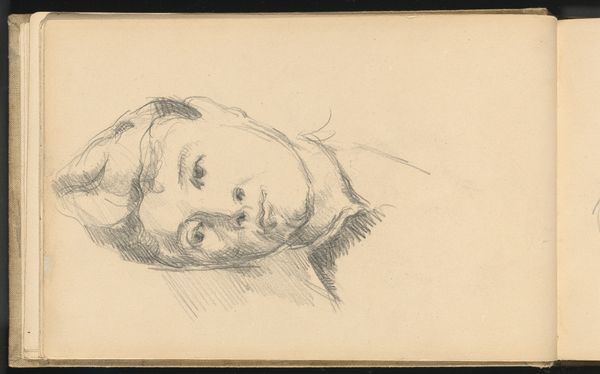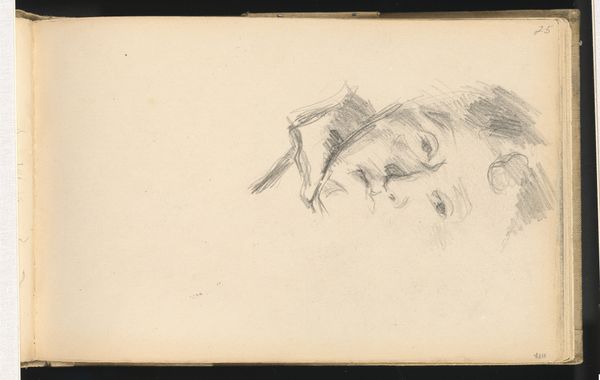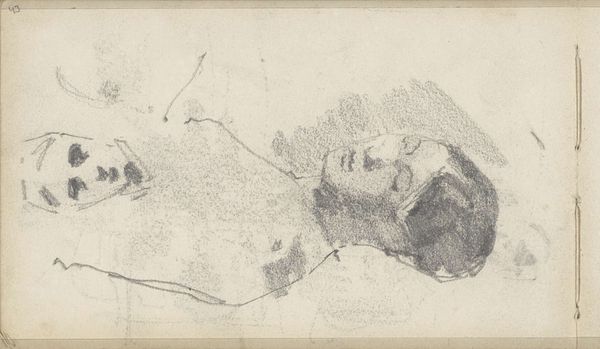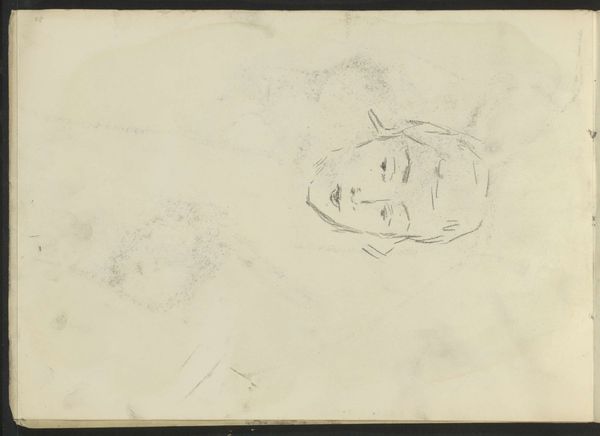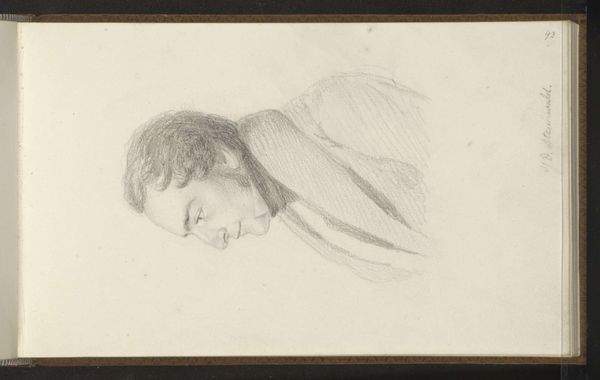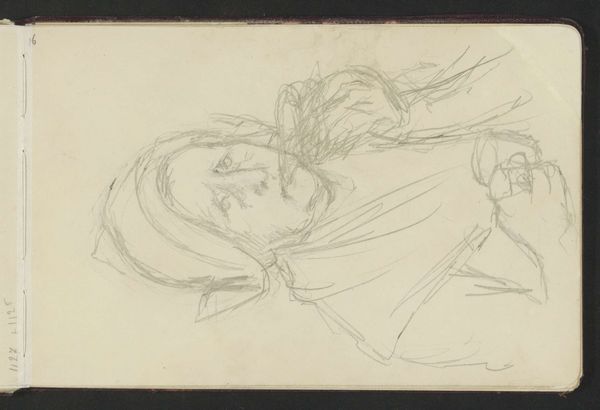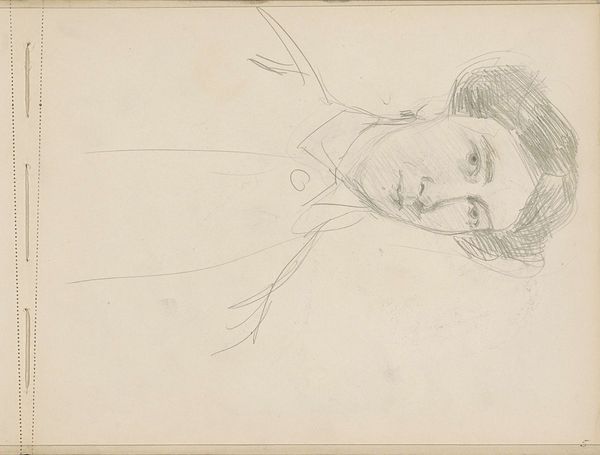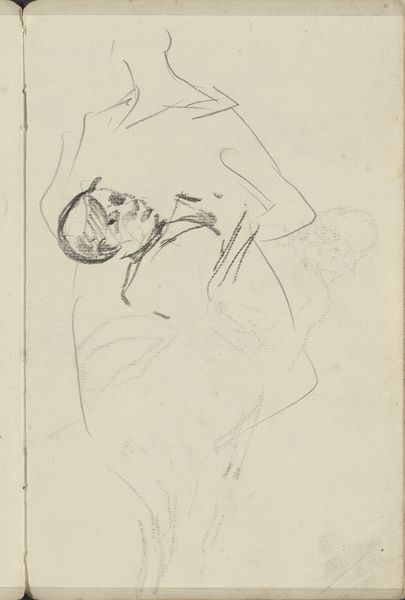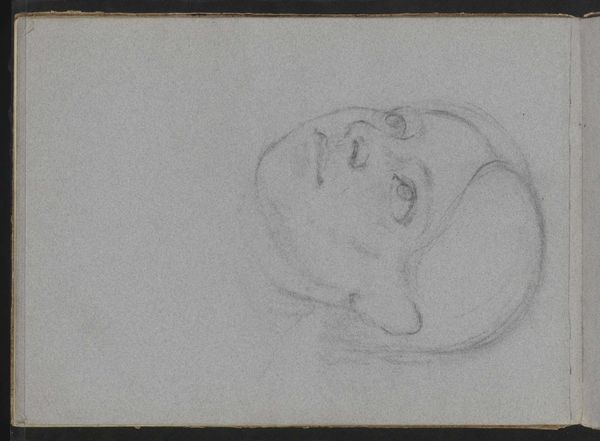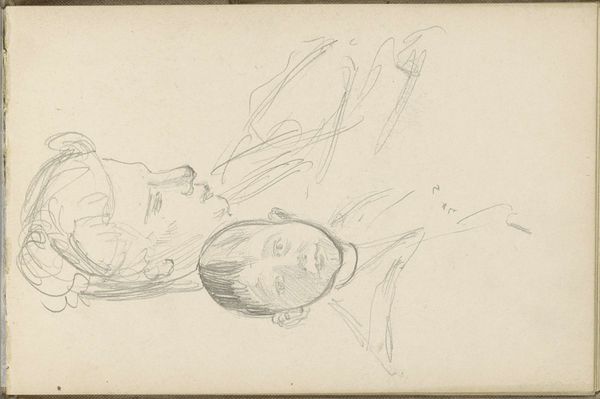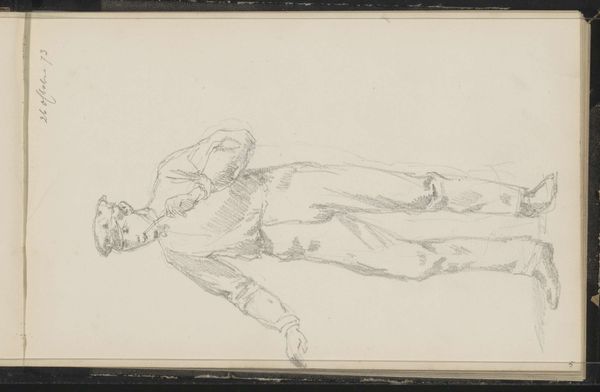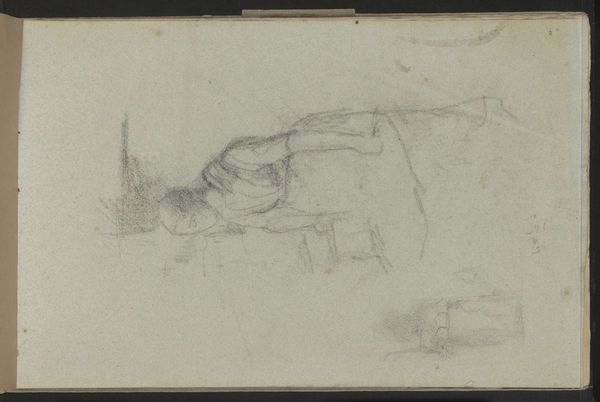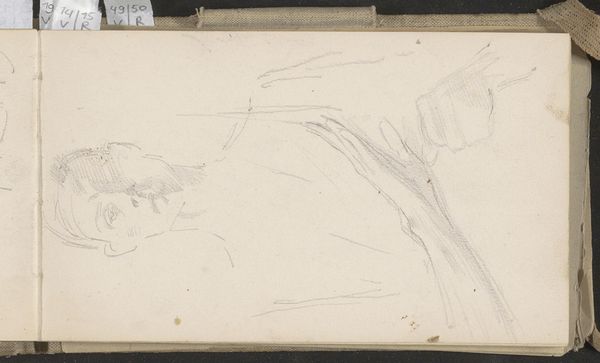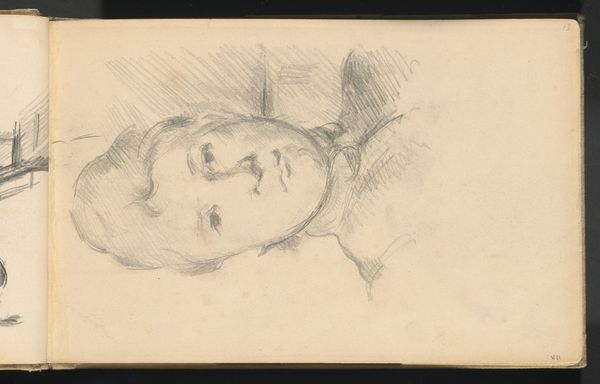
drawing, pencil
#
portrait
#
drawing
#
amateur sketch
#
toned paper
#
light pencil work
#
pen sketch
#
pencil sketch
#
sketch book
#
personal sketchbook
#
pen-ink sketch
#
pencil
#
sketchbook drawing
#
sketchbook art
#
realism
Copyright: Rijks Museum: Open Domain
Editor: This is "Portret van Fanny Hartogh," a pencil drawing dating from around 1880 to 1900. The subject seems to be resting or in repose. What sort of story do you see here, considering the work's likely place within a sketchbook? Curator: A sketchbook, yes! Notice how the unfinished quality and the intimate scale lend a voyeuristic element. The reclining pose—though common in formal portraiture intended to convey leisure and status—here, feels somehow more vulnerable. This glimpse, mediated by the artist's hand, grants access to a private moment. Consider the symbolism of sleep, or rest: What dreams or subconscious thoughts might be suggested here? Editor: That’s an interesting point, subconscious thoughts. Do you think the artist intentionally chose this angle or was it more spontaneous? Curator: Perhaps both? Artists, even in informal sketches, make deliberate choices about composition, light, and shadow. The upward gaze directs our attention heavenward or inward, tapping into associations of spiritual seeking, introspection, or even resignation. Ask yourself what repeated shapes or patterns you see – are they meaningful? Editor: I do see the way her face seems tilted "up," even while she reclines, that is compelling. What’s most interesting is how the light and shadow are cast. Curator: Exactly! The artist's emphasis on shadow, and use of chiaroscuro could highlight the transient nature of beauty, the passage of time, or even darker themes linked to mortality or the melancholic spirit prevalent during this period. It could be viewed as a "vanitas" meditation but translated to an intimate scale, not in the grand allegories found in history painting or large-scale portraiture, but felt on the more personal, psychological level. Editor: I had never considered the "vanitas" element, even in a sketch such as this! Curator: Precisely. That’s the power of seeing art through the lens of symbolism: unlocking hidden layers of meaning, even within the most unassuming image.
Comments
No comments
Be the first to comment and join the conversation on the ultimate creative platform.
